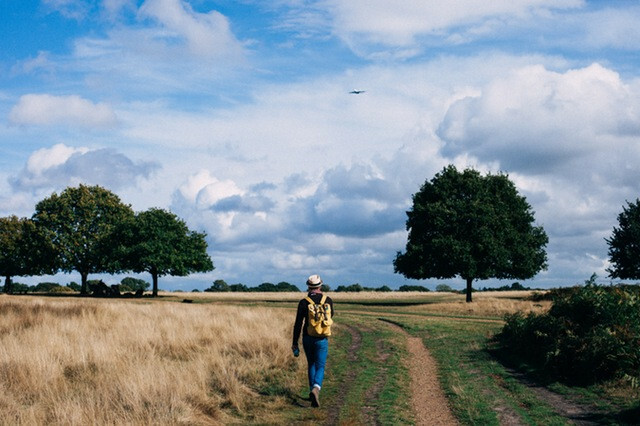The psychological benefits of walking
Physical exercise has always been associated with toning muscles, burning calories and preventing diseases, but the truth is that its positive effects even affect our facet psychological.
In fact, much of the benefits of moving and stretching have to do with improvements not only in how we feel, but in the way we think. And, although it may seem strange, this is noticeable even in exercise modalities as simple as the routine of walking every day.
Some researchers believe that walking can be a good resource to help us think more creatively. Let us see why this conclusion has been reached.
Walk to free your mind
There are people who, when they pretend to concentrate, instead of remaining motionless in the style of the sculpture of The Thinkerthey pace back and forth, even if they are in a relatively small room.
This fact can be interpreted as a clue about one of the effects of going for a walk: it allows us to think more clearly. It is something that can be surprising, since it would be easy to imagine the opposite effect, that is, to believe that thinking and walking at the same time cost more as they are two tasks that we have to attend to separate. However, this does not happen, because the action of walking acts as
a kind of meditation. This is so for several reasons.
The vicious circle that traps our attention
The first reason is that walking serves to release tension. In addition to being useful for exercising many of the largest muscle groups in the human body, walks are a simple way to reduce stress levels, something that in itself is positive, since that prolonged periods of exposure to stress have a negative effect on our immune system. But there is also another advantage related to the way in which walking makes us manage our attention. Specifically, this activity makes us stop constantly thinking about things that cause anxiety.
Many times, when there is something in our day-to-day life that causes us a certain anxiety or sadness, something is produced in us that in psychology is known as rumination, it is In other words, a tendency to constantly bring our thoughts to the source of that discomfort, which sometimes causes us to enter a vicious circle and each time we feel worse. Rumination is a kind of train track that constantly guides our thoughts towards what causes us discomfort, and for that very reason it feeds on the routine.
The more we expose ourselves to stimuli that we have experienced before, the more likely it is that the focus of our attention will be redirected towards those ideas or memories that produce stress, because we will have already become accustomed to associating everything we do with the negative feelings associated with routine.
Breaking with the pre-established paths
Walking is an experience that allows us to "disengage" our attention from those paths through which our thoughts usually run because, in addition to reducing stress through light physical exercise, makes our thinking more spontaneous and improvised by exposing us to changing environments, new. And with the perception of novel situations comes the ability to think more creatively.
In addition, since walking is a very simple task that is normally not difficult to carry out, It is not necessary for our attention to be very focused on this sequence of movements..
Walking is relevant enough to make us forget about the thought circuits we are attached to. accustomed, but at the same time it is simple enough to allow our attention to find distractions in a simple way. spontaneous.
The process, summarized in its fundamental points, is as follows:
- Sedentary lifestyle and monotony make our thinking always come up against the same stimuli and the same references, which always lead us to the same ideas and sensations, trapping us in a vicious circle.
- Moderate physical exercise related to walking makes us feel better, which makes it less likely that our attention will always remain focused on our worries, since it changes the way we see the world.
- In turn, the world we look at also literally changes, because we are always on the move. As a result, we think in a spontaneous and different way, we find relationships between ideas and sensations that before we had not thought to relate and we began to create experiences closely linked to this impulse creative.
A creative path through the trees
We have already seen that walking has psychological benefits that are easy to find in almost any context, but there is a type of environment that combines very well with this activity: natural environments with vegetation.
The quality of the air in these spaces, the charm of this type of area and the absence of elements that refer to our routine make the natural areas in a very good place to go to disconnect from everything and make our creativity and imaginative spontaneity put to to work.
As in a place of these characteristics it is difficult for the human body to find the discomfort of the noise and pollution of the cities, it is much easier than the level of stress falls significantly, making the brain free to experiment with thought and with the wealth of stimuli that come from the environment. Nature is almost always the best canvas.
